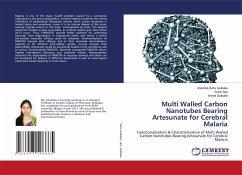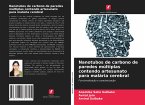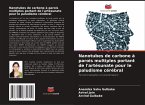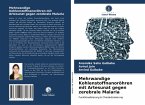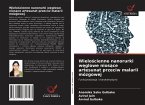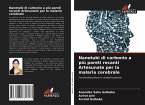Malaria is one of the major health problem caused by a protozoan belonging to the genus plasmodium. Cerebral malaria comprises the clinical reflections of plasmodium falciparum malaria which causes mutations in mental status and sometimes, coma. It is an intense disease of the brain, causing ring-like lesions in the brain, accompanied by fever. The patient should be treated as early as possible, as cerebral malaria gets fatal within 24-72 hours. Thus, f-MWCNTS provide better platform for protecting bioactive from degradation in endosomal milieu and hence a better intracellular bioactive efficacy could be obtained. Functionalization of MWCNTs improve their efficacy, due to their increased internalization capacity or for efficient intra-cellular uptake, vis-a-vis increase their dispersibility. Artesunate could be successfully loaded in the purified as well as various functionalized MWCNTs. Mannose conjugated MWCNTs shows highest entrapment efficiency and sustained release. Mannosylation improved the dispersibility of MWCNTs in aqueous solvents and these can be developed for delivery of different bioactive(s) as well as active ligand (mannose)-based targeting to brain tissue.
Bitte wählen Sie Ihr Anliegen aus.
Rechnungen
Retourenschein anfordern
Bestellstatus
Storno

